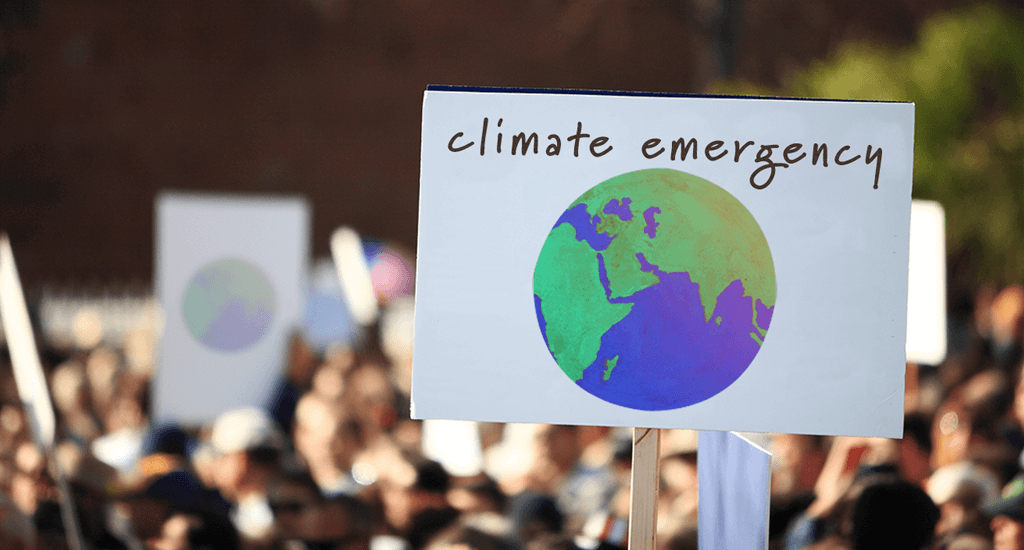climate emergency

climate emergency (crisis, breakdown) – sostantivi
global heating – sostantivo
A national climate emergency has been declared by the UK Parliament.
It is cities, not national governments, that are most aggressively fighting the climate crisis – and in 30 years they could look radically different.
Taking a different approach to the way land is managed is as important as high-tech solutions to address climate breakdown.
Nell’ultimo anno si è parlato dell’ambiente come non mai e l’opinione della comunità scientifica che le attività umane siano responsabili del riscaldamento del pianeta è generalmente accettata. L’attenzione si è quindi spostata su come fronteggiare la crisi che ci riguarda tutti: dagli scioperi per il clima indetti dagli studenti sull’esempio di Greta Thunberg alle campagne di Extinction Rebellion, il movimento trasversale di disobbedienza civile nonviolenta, è difficile ignorare la spinta a rimpiazzare le belle parole e le buone intenzioni con qualcosa di concreto che faccia davvero la differenza. Anche il modo in cui si parla dell’ambiente sta riflettendo l’allarme crescente e giornali come l’autorevole Guardian hanno dichiarato che non useranno più espressioni quali climate change ma termini più consoni alla drammaticità della situazione tipo climate emergency, crisis e breakdown, così come global heating sostituirà il meno inquietante global warming. Una presa di posizione simile è dettata dalla volontà di sottolineare la gravità dello stato di cose e di incoraggiare il lettore ad agire per affrontare la crisi.
Origini del termine
I termini climate emergency, climate crisis e climate breakdown sono parole macedonia formate dal sostantivo climate ed emergency, crisis e breakdown rispettivamente. Global heating è composto dall’aggettivo global e il sostantivo heating. Le combinazioni di questo tipo sono praticamente infinite.
Traduzione di Loredana Riu
climate emergency (crisis, breakdown) – nouns
global heating – noun
A national climate emergency has been declared by the UK Parliament.
It is cities, not national governments, that are most aggressively fighting the climate crisis – and in 30 years they could look radically different.
Taking a different approach to the way land is managed is as important as high-tech solutions to address climate breakdown.
Over the past year or so, the environment has been in the news as never before. With the wide acceptance of the overwhelming scientific view that human activity is causing the planet to warm, attention is increasingly focused on ways to address this existential crisis. Whether it is the climate strikes of schoolchildren and others started by Swedish teenage activist Greta Thunberg, or the eyecatching campaigning of radical climate groups like Extinction Rebellion, it is hard to ignore the growing pressure to replace warm words and good intentions with actions that will actually make a difference. The changing language used to talk about the environment reflects this heightened level of concern. Some news organizations such as the Guardian have declared that they will no longer talk about climate change, preferring more dramatic terms such as climate emergency, crisis and breakdown. For similar reasons, the term global heating is preferred to the more benign-sounding global warming. In this way they hope to underline the gravity of the situation and encourage their readers around the world to take action to address the crisis.
Origin
The terms climate emergency, climate crisis and climate breakdown are all compound nouns formed from the noun climate plus another noun. Global heating is formed from the adjective global and the noun heating. There is virtually no limit to the number of compounds that can be formed in this way.



